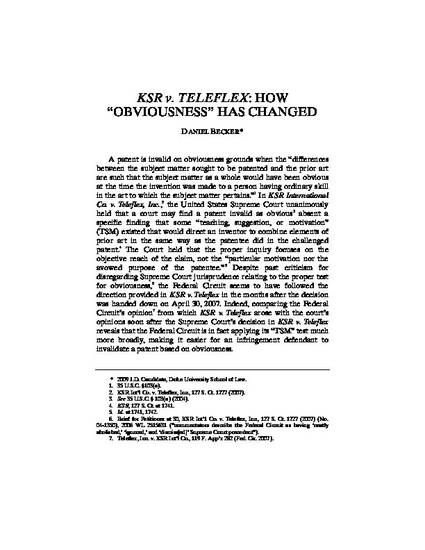
- General
In KSR v. Teleflex, the Supreme Court examined the Federal Circuit's obviousness jurisprudence for patents. Both prior to and in this case, the Federal Circuit rigidly applied its judicially created "teaching, suggestion, or motivation" (TSM) test to determine whether the prior art would direct an inventor of ordinary skill in the art to combine references or elements in references in the same way as the patentee did. The Supreme Court, however, reversed the decision of the Federal Circuit, and held that by applying the TSM test in such a strict manner, the Federal Circuit had "analyzed the issue in a narrow, rigid manner inconsistent with [35 U.S.C.] § 103 and our precedents." KSR is now the controlling case defining the proper obviousness analysis for patents.
Available at: http://works.bepress.com/daniel_p_becker/26/
